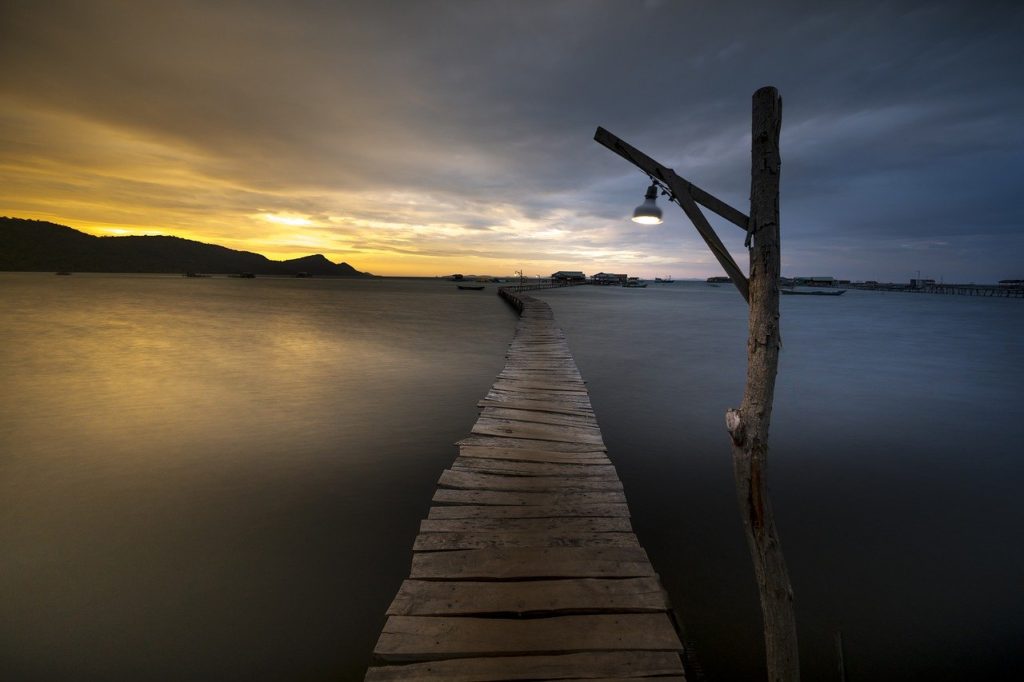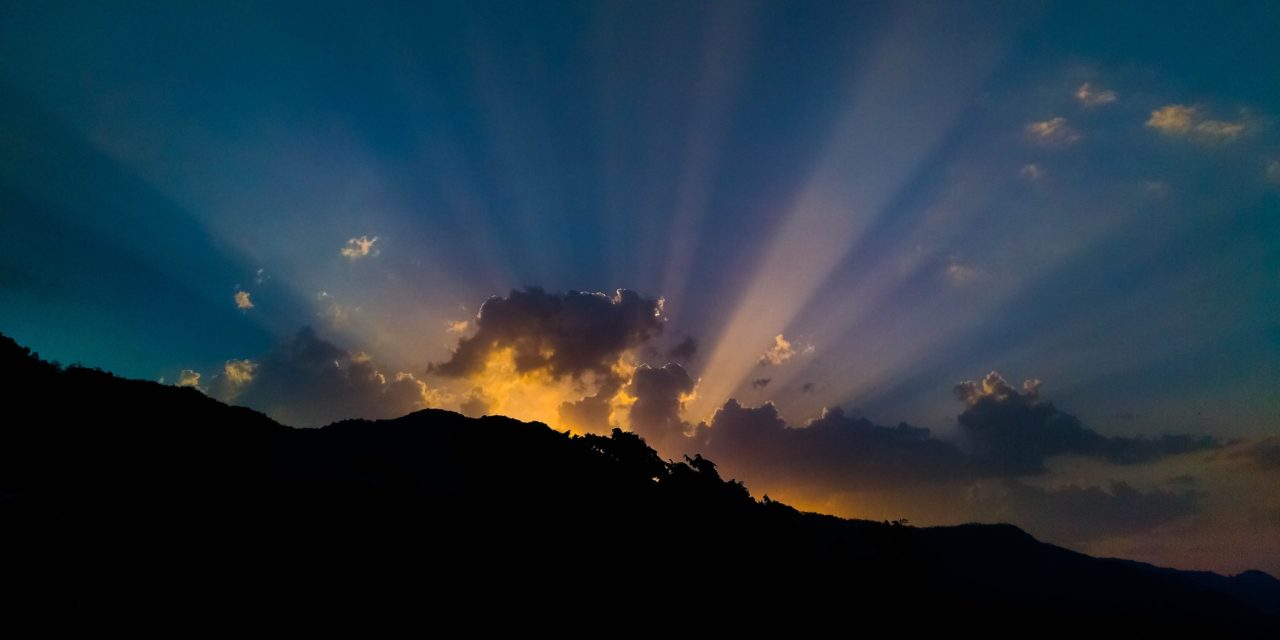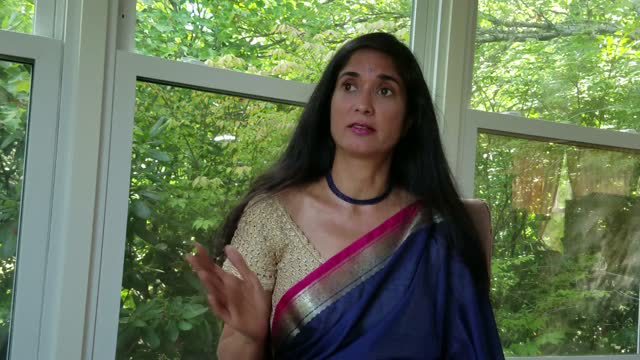Why am I here? What did I come here to do? And what do these questions have to do with the coronavirus pandemic?
Understanding the Work of Soul
Malidoma Somé, an initiated West African shaman with a western Ph.D., talked about soul-work one day in a Mendocino Men’s Gathering. He explained that in his culture’s cosmology, spiritual elders in the pre-life realm meet with each soul planning a return to Earth to help them choose their specific purpose in coming back. Once an appropriate task is identified, the individual is sent forth to be reborn but soon forgets the plan. Each person carries the seed of that sacred mission within. At some point along the road of life, an inner clock starts ticking and restlessness ensues because the individual unconsciously knows that their soul’s work is still undone. This same disquiet arises in personal or collective crises. Spiritually speaking, such agitation is meant to draw attention to the unfinished work of the soul. Finding our purpose in life and its crises, therefore, is about remembering why we came and discerning what this soul-work is right now. Whatever your religious or spiritual beliefs, Malidoma’s explanation represents an archetypal description of the soul’s calling. Here’s a personal example.
At the callow age of 14, I underwent open-heart surgery for the correction of a congenital atrial-septal defect. The operation saved my life but nearly obliterated my soul, for during surgery, I woke up feeling hands working inside my heart. It’s called anesthesia awareness and happens when anesthesia levels fall too low to maintain unconsciousness while paralyzing neuromuscular blocking agents prevent the patient from communicating this horror to OR staff. I repressed this horrific trauma for decades until a defibrillating shock administered to convert a heart arrhythmia shattered my defenses and I had to relive every devastating second of the surgery. I broke. Unable to hold the emotional pain of others, I gave up my work as a clinical psychologist and returned to school for a doctorate in interfaith spirituality. Yet all the while, I kept wondering – and asking! – why must I suffer this immense anguish only to lose my professional identity, career, income, and psychological community. At the culmination of my studies, however, I began writing again and seven books poured forth over the next decade articulating the surprising spiritual realizations I came here to share. Thank you, Malidoma!

Finding Our Soul-Work in the Coronavirus Crisis
If I had kept trying to return to my career – and believe me I tried for a long time, more depression would have followed, for depression often signals the betrayal of soul. Eventually, I understood that my childhood trauma represented an unfinished adolescent initiation. The initiation was incomplete because it lacked the ritual structure, sacred purpose, and community participation to unveil my soul’s deep calling and unique gifts. Absent this sacred container, and to protect my fragile childhood ego, the revelation fell into the darkness of the unconscious. Forty years later, with the clock ticking loudly, it was time to uncover my soul’s vision. In this fashion, the personal discovery of soul-work often requires many crises, bringing up the issue over and over, until we finally pay attention to the call of soul. Which leads to discernment.
As a psychologist, minister, and mystic, I view discernment from a spiritual and depth-oriented perspective where it implies a prolonged and heartfelt search for one’s truest vocation or calling. Why am I really here? What did I come here to do? These kinds of questions inspire a new experience and interpretation of our personal problems. Difficult times, too, invite us on a vision quest for the work of our soul. Moreover, as a depth-oriented psychotherapist, I learned that anything we can experience deeply and honestly will change, and it will change us. And, as a mystic, I learned that consciousness is itself sacred, and anything held in awakened consciousness becomes sacred, including our suffering and our work. To find the vision of our soul, therefore, we need to let feelings “grow us” emotionally and then sanctify our work in sacred consciousness.

Tools for Beginning the Search
What is soul-work in the coronavirus crisis? The answer, of course, is absolutely personal – it is unique to each of us. Because only you can answer that question, here are three tools for opening your sacred calling.
Reframe Self-Quarantine as a Spiritual Retreat. In the worldwide pandemic, we are asked to self-quarantine. Rather than constituting a prison of interminable boredom, make seclusion a personal spiritual retreat, an opportunity to reflect on the work of your soul. Happily, there are many ways to do this – meditate, pray, dwell in deep silence, write in your journal, analyze dreams, consult the Tarot or I Ching, read the great spiritual writers, teleconference with a therapist or spiritual director, or initiate creative phone discussions with close friends. But keep in mind, revelations don’t always come quickly or easily; they need to mature like newly planted bulbs and we need to clear the weeds of everyday distractions and misleading beliefs.
Access Your Soul’s Nature. You can also access your soul’s nature and work more directly. To begin the search for your soul-work, try these two exercises.
Pick a spiritual question that appeals to you from the list below, write a spontaneous answer (don’t censure anything, just free associate), then ask the same question again and write another answer, and keep repeating this process for several minutes. You may end up with as many as 5, 10 or 20 responses. When no more new answers arise, review your responses, underline the ones that feel most authentic, and write about what you are learning. Then repeat the exercise with another question. You may wish to focus one or two questions at a time, returning later to explore others. Here are the questions. Add your own later if you wish.
-
What did I come here to do?
-
What is the nature of my soul?
-
What brings me the greatest joy?
-
What brings me to life?
-
What breaks my heart?
-
What is the spiritual meaning of this pandemic?
-
What is my soul-work in this crisis?
-
Where is God in this struggle?
-
How is my soul experiencing this situation?
Have a Dialogue with Your Soul. Here is a simple but powerful visualization exercise for meeting your soul. Find a comfortable spot to sit, have paper and pen handy, then clear your mind and follow these steps:
Imagine that you can see your soul somewhere in the room. Take your time. Let his or her image spontaneously come to you. Where is he or she standing or sitting?
Let the image become clearer. What does your soul look like? Start writing. Describe its physical appearance, clothes and age. What is his or her expression, mood, attitude or emotional energy? Let the image become clearer little by little, as if adjusting the lens on binoculars to bring something into focus.
Welcome your soul in whatever way you like. How does your soul respond to your reaching out?
Now begin writing a dialogue. You might start by saying how you feel, what’s been on your mind, or asking a question. When you’ve expressed yourself, sense the soul’s energy and let your soul respond. Record the response without censoring or judging it. Accept whatever is said and then write your reaction.
Continue in this fashion pursuing any topics that are important to you. Consider asking if your soul-work involves new learning, caring for others, making amends for past lives, awakening our gifts for the world, or pursuing additional spiritual growth and transcendence?” You will know that the dialogue is authentic if your soul responds in ways that surprise, teach or affect you emotionally. The soul’s vision always provides new information.
You may also find your soul being more assertive than you would have expected, pushing you to your express your gifts the world. The prophet archetype of the soul soon or later insists on action.
When the dialogue feels complete or runs out of gas, stop, reread it, and write your reflections on what was revealed. What did you learn? How do you feel? What was your soul’s message?
When the conversation feels complete, thank your soul and say good-bye until next time.

Practice Mystical Activism. When you can’t go out into the world to do soul-work, consider the power of mystical activism – the intentional awakening of divine consciousness in your life and work. In this heightened, thought-free awareness, we discover new skills, including ways to change the world through unity consciousness; opening a mystical channel to the “other world” to seek help from deceased loved ones, ancestors, angels, spirit guides, and the divine; and initiating dialogues with Creation, or even Coronavirus, to find out what this crisis means on a spiritual level and what else you can do even in seclusion. The other good news is that the outdoors is not off-limits at this crisis, so go outside and awaken the mystical perception of sacred reality, which is a powerful experience for inspiring more soul-work. Instructions for these and other practices can be found in Mystical Activism: Transforming a World in Crisis.

Humanity’s Collective Soul-Work
An unfolding series of world-wide crises now confronts humanity, including, but not limited to, the coronavirus, climate change, the population explosion and the coming economic chaos. Is yet another spiritual task required of us in this apocalyptic time, one common to the whole of humanity?
Abraham Maslow, the father of humanistic psychology – the “Third Force” of American psychology, and its wonderfully enlivening concepts – “hierarchy of needs,” “peak experiences,” “self-actualizing personality,” suffered a severe heart attack in his early 60’s and died several months later. In the intervening months, a time of very fragile health he called his “post-mortem life,” Maslow’s personality changed dramatically, shifting from a nearly workaholic level of ambition and productivity to a steady state of transcendent calm, characterized by a deep serenity, unitive consciousness, spontaneous spiritual insights, and pervasive perceptions of radiance, beauty, and the miraculous nature of being. He called this new state of consciousness the “plateau experience” and said he could awaken it voluntarily and remain “turned on.”
Similarly, Pierre deChardin, the French philosopher, paleontologist, Catholic priest, and mystic, coined the term “noosphere” to describe what he sensed as an emerging collective level of unity consciousness, a superintelligence infusing all of us with trans-human awareness and intelligence. Aldous Huxley, too, suggested that an awakened intelligence was coming that would allow humans to transcend their individuality, accelerating curve of spiritual evolution. I believe Maslow, deChardin, and Huxley were describing an enduring state of mystical consciousness that will evolve one day for all of us, transforming our lives and our work.
As a mystic, I sense the potential for “plateau” consciousness emerging in these catastrophic times, but its full realization is up to us – we must each take responsibility for our own awakening if we are to serve humanity’s transformation. The means of our awakening is mystical consciousness, a skill I have been writing about for twenty-five years. And here’s the bottom line: either we bring forth this new state or we destroy ourselves. We walk this razor’s edge every day. In sum, our collective apocalypse can represent a major turning point in human civilization, moving us from the sins of greed, power, and patriarchy, to the all-infusing love and unity of the omnipresent divine, if we follow the path. Such is our collective soul-work.

Conclusions
Reliving my heart trauma triggered a personal apocalypse but this it wasn’t my ending; rather it initiated the universal symbolic passage of death and rebirth – the death of my old life and the birth of a new and spiritually deeper one. I believe this passage also informs our collective apocalypse, representing the ending of an old and corrupted stage of consciousness and the birth of a new and more universally loving one, if we respond from the deep place of soul and wake up in time.
Why are you here? What did you come here to do? And will your discovery of soul-work and mystical consciousness help you rise to the challenge of these catastrophic times to serve the world? As problems multiply in these expanding crises, may you unwrap your sacred gifts and help awaken humanity’s sacred consciousness. Let me know what you discover.

John’s newest book shows us how we hold the power to change the world, right where we are.






